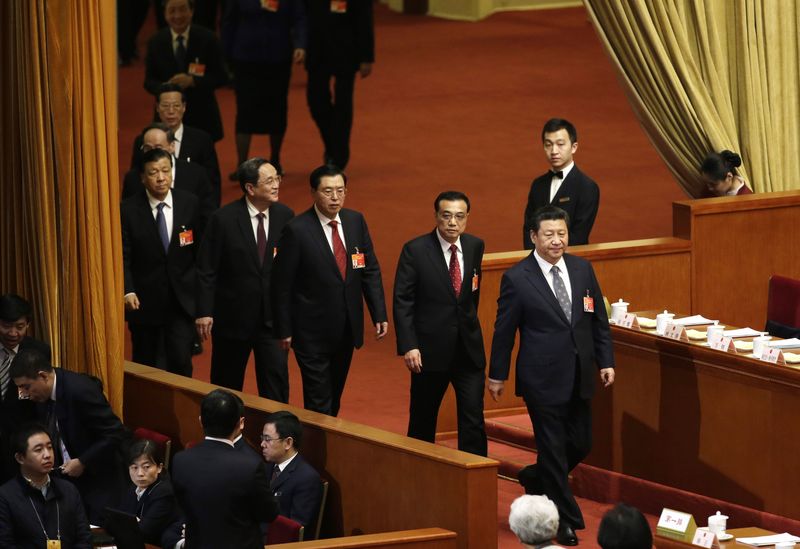BEIJING (Reuters) - China plans to enact specific legislation to fight corruption, the head of the country's parliament said on Sunday, as the government continues its campaign against graft.
Zhang Dejiang, who is also the ruling Communist Party's third ranked leader, made the announcement at a full meeting of the National People's Congress' roughly 3,000 delegates.
He gave no details, and it is not clear how the new law will differ from existing laws which target things like bribery and embezzlement. The party generally conducts its own probes into corruption first before handing over suspects to prosecutors.
The official Xinhua news agency said the proposed new legislation sprang from a key party meeting last autumn about strengthening the rule of law in China.
"The top legislature is mulling imposing harsher punishment on those committing crimes of embezzlement and bribery," Xinhua said.
President Xi Jinping, who assumed office in 2013, has vowed to go after powerful "tigers" and well as lowly "flies", saying, like others before him, that the problem is so serious it could affect the party's ability to maintain power.
Other legislation planned includes laws on domestic violence, terror, the management of foreign non-governmental organizations (NGOs) and on cyber-security, Zhang added, as well as an amendment to the air pollution law. He gave no details.
The anti-terror law, which would require tech firms to provide encryption keys and install backdoors granting law enforcement agents access for counterterrorism investigations, has drawn concern internationally, including in the United States.
The proposed NGO law has also attracted criticism for the restrictions it seeks to impose.
